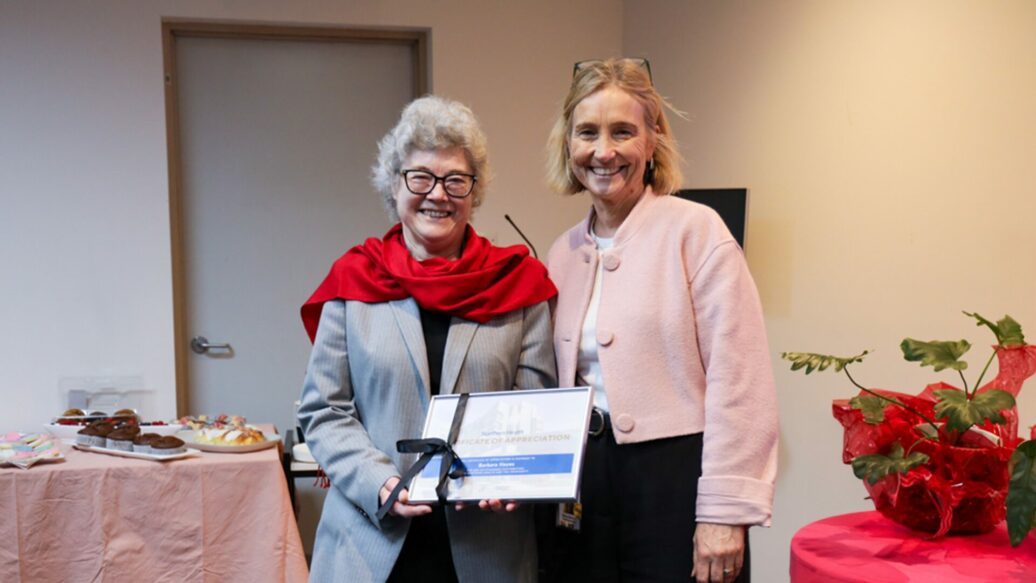 July 30, 2025
July 30, 2025“We have a society that often doesn’t understand the limits to medicine,
and that pursuing ever-more medicine can cause harm and suffering without benefit.”
#WeAreNorthern
Today, we celebrate the remarkable career of Dr Barbara Hayes, Clinical Leader in Advance Care Planning and Palliative Care Physician, as she transitions into an honorary role at Northern Health.
Barbara’s journey began in 1995 within the North Western Healthcare Network, where she managed palliative care beds at what is now the Royal Park campus of the Royal Melbourne Hospital. When Northern Health became independent in 2002, Barbara and the palliative care beds moved to Broadmeadows Health Service, where she led a dedicated Palliative Care Unit and provided consultative support across the organisation.
Her leadership has been instrumental in shaping Northern Health’s Advance Care Planning program over the past 18 years.
Barbara, what inspired you to focus your career on palliative care and advance care planning?
I was originally planning to study geriatrics and then realised the importance of palliative care in that sector. I decided to obtain some Palliative Care experience – and stayed. I was asked to take on Advance Care Planning while completing a PhD – ethical CPR decision making. It was a natural fit and I became passionate about teaching and improving Advance Care Planning, Goals of Care and Informed Consent.
How has your understanding of end-of-life care evolved over the years?
I think that end-of-life care systems have changed a lot over the years, but patients haven’t. Their needs are the same, and the importance of understanding the whole patient and their place in the family, and society, is very important. I like that Palliative Care is the only medical specialty to include spirituality as a core need of patients.
Why is this important to patients?
Because many people would identify as having a spiritual element to who they are – not necessarily religious. It is good to recognise this in healthcare. Of course, as people approach death, spiritual issues often become more prominent.
What advice would you give to the next generation of clinicians and educators in this field?
Focus on the patient, learn from the patient and family, and don’t underestimate the therapeutic value of yourself as a caring person.
Which research project or publication are you most excited about or proud of?
I would have to say my PhD thesis, ‘Ethical CPR decision making’. This gave me a lot of skills that enabled further research, teaching and process development, such as the Goals of Care.
How do you see the future of Advance Care Planning evolving in the next decade?
I hope it becomes more common-place and brings about cultural change in our community so that people become more health and death literate. We have a society that often doesn’t understand the limits to medicine, and that pursuing ever-more medicine can cause harm and suffering without benefit.
What will you miss most about working at Northern Health?
The people. It is a friendly place to work. I also see a lot of clinicians who have a real heart for their patients, which is inspiring.
What are your plans or hopes for the next chapter of your life?
Have a rest. I still have research to complete as part of an Honorary Northern Health appointment.
If you could leave one message for the patients and families you’ve supported, what would it be?
Thank you. I am grateful to you for teaching me so much along the way; I wish though that I knew at the beginning what I know now.
I am also grateful to have had the opportunity to meet so many extraordinary people, who have lived extraordinary lives, and for the kindness shown to me by patients and families. I will remember some of my patients until the day I die.


